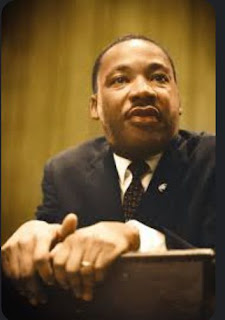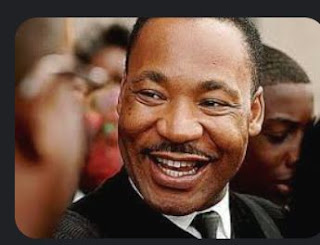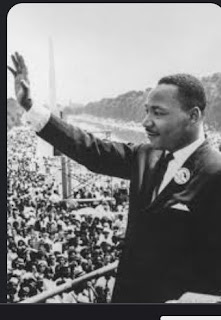MARTIN LUTHER KING JR BIOGRAPHY , AGE EARLY LIFE CAREER ACHIEVEMENTS AND LIFESTYLE BIOGRAPHY
Martin Luther King Jr. was a prominent civil rights activist and leader who played a pivotal role in the American civil rights movement during the mid-20th century. This biography will provide an in-depth look into the life, accomplishments, and legacy of Martin Luther King Jr.
EARLY LIFE AND EDUCATION
Martin Luther King Jr. was born on January 15, 1929, in Atlanta, Georgia. He was the second child of Martin Luther King Sr. and Alberta Williams King. King grew up in a loving and nurturing environment, surrounded by a strong religious influence, as his father was a Baptist minister. From a young age, King showed remarkable intelligence and was a gifted student.
King attended segregated public schools in Atlanta and later enrolled at Booker T. Washington High School. Setting the stage for his future activism, King experienced racial discrimination and segregation throughout his early education. Despite the challenges, he excelled academically and skipped both the ninth and twelfth grades, eventually attending Morehouse College at the age of 15.
INFLUENCES AND SPIRITUAL DEVELOPMENT
During his time at Morehouse College, King was exposed to the teachings of Gandhi, which influenced his commitment to nonviolent protest. He became increasingly involved in civil rights activities, participating in the March on Washington Movement, which fought against segregation in the military and defense industries.
After graduating from Morehouse College in 1948, King pursued his theological studies at Crozer Theological Seminary in Pennsylvania. It was during this time that he developed his understanding of social justice and racial equality by studying the works of influential theologians, such as Reinhold Niebuhr.
CAREER AND ACTIVISM
In 1955, King completed his doctoral studies at Boston University and was appointed as the pastor of the Dexter Avenue Baptist Church in Montgomery, Alabama. This was where he achieved nationwide recognition for his leadership during the Montgomery Bus Boycott, which began after Rosa Parks, an African American woman, refused to give up her seat to a white passenger.
King played a vital role in coordinating the boycott and became its spokesperson, advocating for nonviolent resistance and civil disobedience. His efforts eventually led to the Supreme Court ruling that segregation on public buses was unconstitutional.
In 1957, King was instrumental in founding the Southern Christian Leadership Conference (SCLC), a nonprofit civil rights organization focused on combating racial segregation and discrimination through nonviolent means. He was elected as its president and continued to lead various campaigns throughout his career. Notable among these campaigns were the Birmingham Campaign and the March on Washington for Jobs and Freedom, where King delivered his iconic "I Have a Dream" speech.
King's leadership and ability to mobilize the masses were crucial in advancing the civil rights movement. He advocated for equal voting rights, desegregation, and an end to poverty and racial discrimination. His commitment to nonviolence was highlighted in 1964 when he became the youngest-ever recipient of the Nobel Peace Prize for his efforts in combating racial inequality.
LATER YEARS AND ASSASSINATION
In the last years of his life, King shifted his focus towards economic justice and the eradication of poverty. He envisioned the Poor People's Campaign, which aimed to unite individuals of all races and classes in a fight against economic inequality. Unfortunately, King's life was cut short on April 4, 1968, when he was assassinated in Memphis, Tennessee.
LEGACY AND IMPACT
Martin Luther King Jr.'s legacy continues to resonate globally, and he remains one of the most influential figures in American history. His commitment to peaceful protest, unfaltering dedication to equality, and unwavering belief in the power of love and unity have left an indelible impact on the world. Through his tireless efforts, significant strides were made towards racial equality, and his speeches and writings continue to inspire people to this day.
CONCLUSION
Martin Luther King Jr.'s contribution to the American civil rights movement cannot be overstated. His unwavering commitment, strategic leadership, and belief in the power of peaceful protest have had a lasting impact on society. Through his advocacy for racial equality, King paved the way for a more inclusive and just society. He will forever be remembered as a true visionary and champion of civil rights and social justice.
















0 Comments